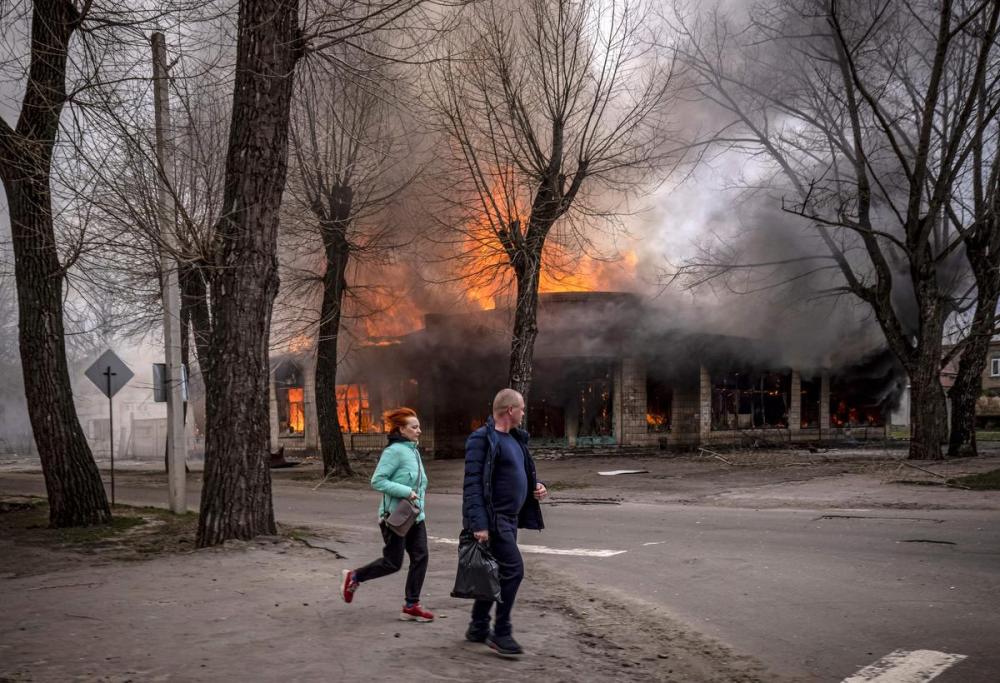RCMP to launch national investigation into allegations of war crimes in Ukraine
Advertisement
Read this article for free:
or
Already have an account? Log in here »
To continue reading, please subscribe:
Monthly Digital Subscription
$0 for the first 4 weeks*
- Enjoy unlimited reading on winnipegfreepress.com
- Read the E-Edition, our digital replica newspaper
- Access News Break, our award-winning app
- Play interactive puzzles
*No charge for 4 weeks then price increases to the regular rate of $19.00 plus GST every four weeks. Offer available to new and qualified returning subscribers only. Cancel any time.
Monthly Digital Subscription
$4.75/week*
- Enjoy unlimited reading on winnipegfreepress.com
- Read the E-Edition, our digital replica newspaper
- Access News Break, our award-winning app
- Play interactive puzzles
*Billed as $19 plus GST every four weeks. Cancel any time.
To continue reading, please subscribe:
Add Free Press access to your Brandon Sun subscription for only an additional
$1 for the first 4 weeks*
*Your next subscription payment will increase by $1.00 and you will be charged $16.99 plus GST for four weeks. After four weeks, your payment will increase to $23.99 plus GST every four weeks.
Read unlimited articles for free today:
or
Already have an account? Log in here »
Hey there, time traveller!
This article was published 07/04/2022 (1345 days ago), so information in it may no longer be current.
OTTAWA — The RCMP is launching a national investigation into allegations of war crimes in Ukraine, the Star has learned.
Beginning this week, the RCMP will begin seeking information from Ukrainians arriving in Canada who may have experienced or witnessed war crimes or crimes against humanity since Russia invaded in February, but also as far back as Russia’s invasion of Crimea in 2014.
The investigation is being launched in the wake of reports of hundreds of what appear to be civilians being indiscriminately killed in the city of Bucha over the weekend.

On top of global revulsion, the videos and stories emerging from the town have sparked global calls for tougher sanctions on Russia, the end of diplomatic relations, and potentially Russia’s removal from the UN’s most senior human rights body, all as Russia vehemently denies it is targeting civilians.
The RCMP’s investigation flows out of Canada’s War Crimes Program, which for decades has focused on denying safe haven in Canada to those alleged or to have committed war crimes, crimes against humanity, or genocide.
This time, the Mounties want to gather evidence of alleged crimes themselves.
“It is essential that such information be collected and protected at the earliest opportunity, to ensure it is not lost with the passage of time and to preserve crucial evidence for future prosecutions,” says a document outlining the investigation, obtained by the Star.
Ukrainians, and anyone with a Canadian connection who has information about potential war crimes, will be able to provide the RCMP information through a dedicated website, and then officers may follow up to collect evidence, including photos and videos.
To get the word out, those arriving from Ukraine in the coming days will be given pamphlets by border officers, and signs and posters will be placed at airports.
The RCMP is also working to include the information in information packages being distributed by the Red Cross and other agencies.
No one will be compelled to provide testimony or evidence, and a choice not to will not mean they can’t enter Canada.
Upwards of 91,000 Ukrainians have applied to come to Canada since the launch last month of a special temporary visa program in response to the conflict.
Canada has one of the largest Ukrainian diasporas in the world and the government is also working on a special family sponsorship program.
Public Safety Minister Marco Mendicino said that in the short term, the purposes of the RCMP’s investigation is to document the evidence, and in the long term it will aim to ensure justice is done and no one responsible can find safe haven in Canada.
“Canadians have watched in horror as the Putin regime has killed innocent people, targeted civilian infrastructure like hospitals and wantonly disregarded all international rules and norms,” he said in an emailed statement Wednesday night.
“There must be consequences for these illegal and immoral acts.”
The RCMP has already deployed a team of officers to the International Criminal Court as it begins a probe into war crimes allegations against Russia, work that began last month at the urging of dozens of countries, including Canada.
The domestic effort is what’s known as a “structural investigation,” opened when there is evidence a crime has taken place but specific perpetrators are unknown.
The war crimes program is overseen by the RCMP, Canada Border Services Agency, and the Immigration and Justice departments; the RCMP is the only entity in Canada with a mandate to investigate these kinds of alleged crimes.
“War crimes and crimes against humanity include some of the most heinous acts committed across the globe,” the government document says.
“The partners of Canada’s War Crimes Program are committed to ensuring allegations of such crimes in Ukraine are documented, investigated and prosecuted to the fullest extent of the law, and to holding those involved in these crimes accountable for their actions.”
Canada has joined in the international condemnation of Russia’s actions, and on Wednesday published the names of 18 more people now added to the sanctions list.
But so far, Canada has stopped short of following the lead of several allied countries that have expelled Russian diplomats in recent days.
On Wednesday, Prime Minister Justin Trudeau said being able to have Canadian diplomats in Moscow was crucial.
“If we exclude Russian diplomats — which we are considering, like other countries and our allies are doing — we know that will probably mean we lose diplomats in Moscow.”
Stephanie Levitz is an Ottawa-based reporter covering federal politics for the Star. Follow her on Twitter: @StephanieLevitz


